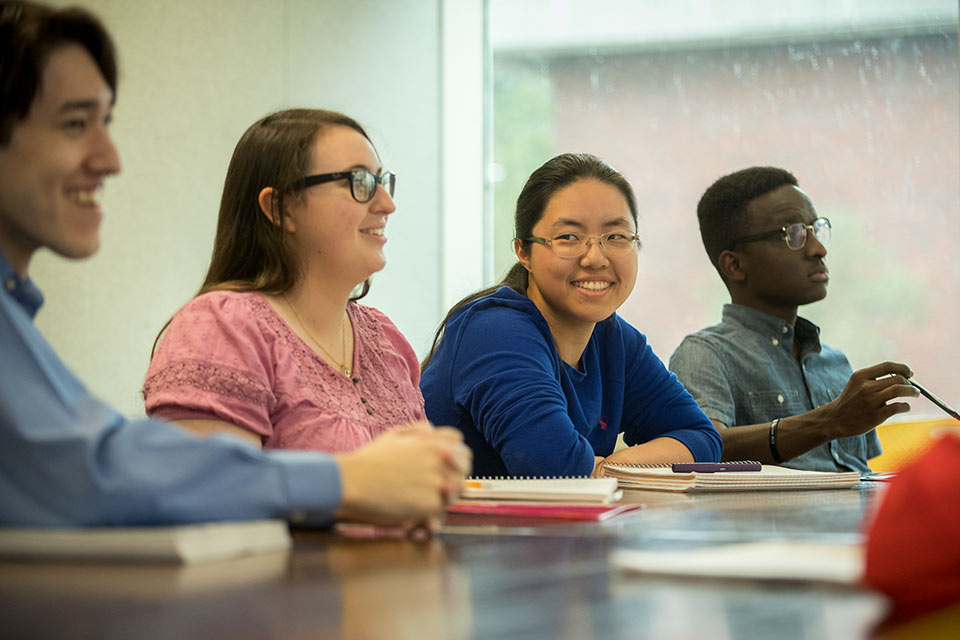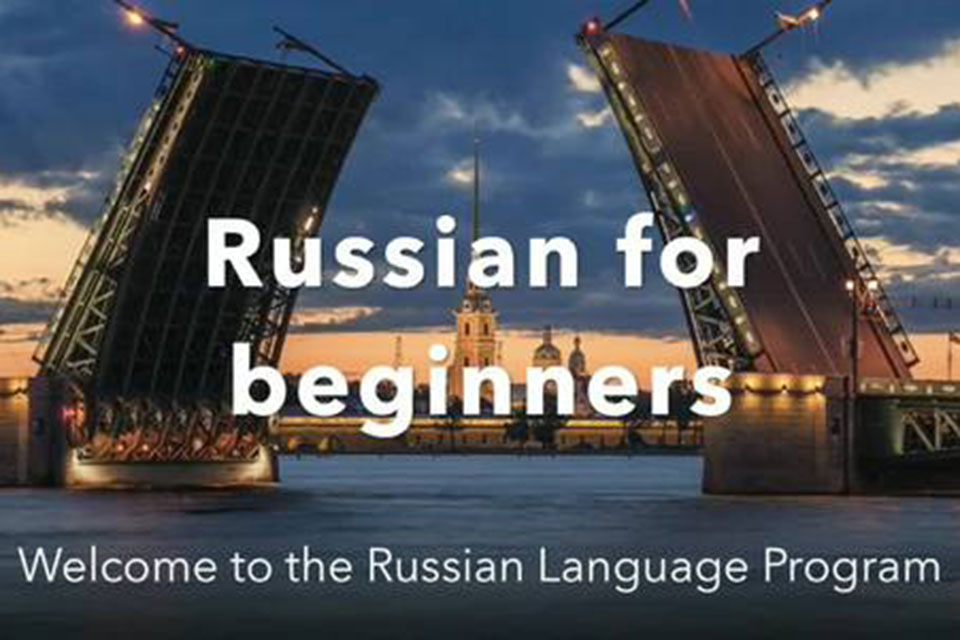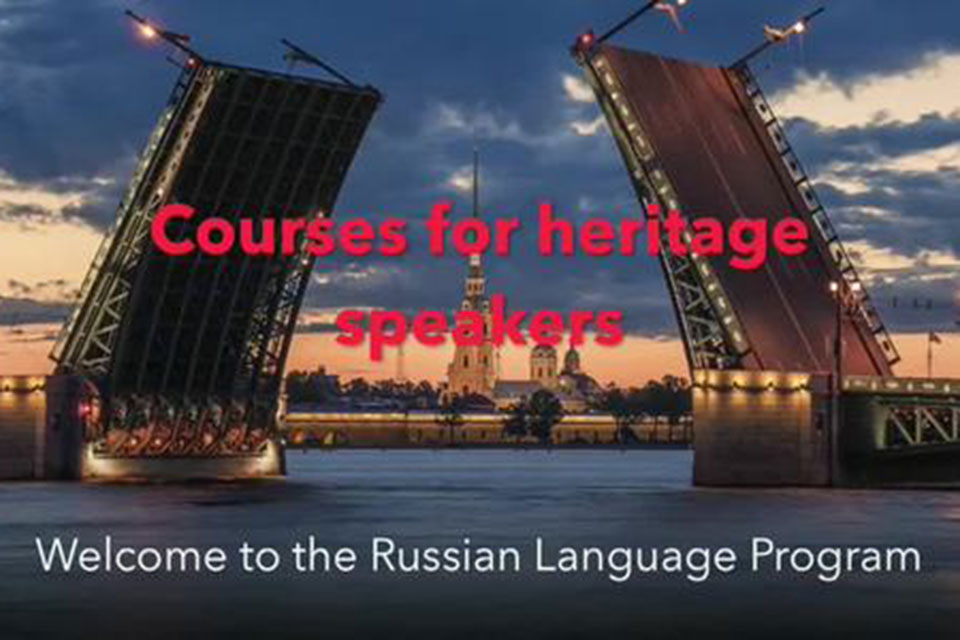Courses

To view the complete descriptions of the courses that satisfy the requirements for the Russian Studies major or minor, please visit the University Bulletin. Russian Studies offers entry level courses for both second-language and heritage speakers.
For course times, locations, and additional details, please visit the Schedule of Classes on the University Registrar's website.
Spring 2024 Courses
Offered in English
Professor David Powelstock
Open to all students. Conducted in English. Readings in English.
Examines the Russian/Soviet cinematic tradition from the silent era to today, with special attention to cultural context and visual elements. Film masterpieces directed by Bauer, Eisenstein, Vertov, Parajanov, Tarkovsky, Mikhalkov, and others. Weekly screenings. Usually offered every second year.
Professor David Powelstock
Open to all students. Conducted in English. Readings in English.
A concentrated study of Vladimir Nabokov, the most noted Russian author living in emigration and one of the most influential novelists of the twentieth century. Focuses on the major Russian- and English-language novels, with special attention to the interplay within them of Nabokov’s philosophy of art and his views on ethics and morality. Usually offered every third year.
Offered in Russian
Professor Irina Dubinina
Prerequisite: RUS 10a with a grade of C- or higher or the equivalent as determined by placement examination. Four class hours and one recitation hour per week.
For students with some previous study of Russian. Continuing development of proficiency across all four skills with the goal of reaching the Intermediate-Low level (ACTFL scale). Student-centered classes emphasize conversation and structural accuracy. Students will complete the learning of the grammatical architecture of the language and expand their vocabulary. Usually offered every spring.
Professors Valeriya Kozlovskaya & Irina Dubinina
Prerequisite: RUS 29b or permission of the instructor.
Students the (re)acquisition of the Russian linguistic system focusing on the conceptual understanding of the language structure. A comprehensive instruction aims to enhance students' ability to express the intended meaning correctly and appropriately. Usually offered every spring.
Professors Valeriya Kozlovskaya & Irina Dubinina
Prerequisite: RUS 30a with a grade of C- or higher or the equivalent as determined by placement examination. Four class hours and one recitation hour per week.
Focuses on expanding the range of contexts for language use and pushing for a greater ease and structural accuracy of language production. Further refining of grammar and vocabulary within the context of Russian culture. Authentic texts and films are used for creating context for reviewing and expanding grammar, syntax and vocabulary knowledge. Usually offered every spring semester.
Professor Valeriya Kozlovskaya
Prerequisite: RUS 39b or RUS 40b with a grade of C- or higher, or the equivalent as determined by placement examination. Taught in Russian.
For advanced and heritage students of Russian who wish to enhance their proficiency and accuracy in speaking, listening, and writing. Course activities will focus on discussions of contemporary Russian feature films and documentaries. Usually offered every fourth year.
Crosslisted Courses
Professor Pu Wang

